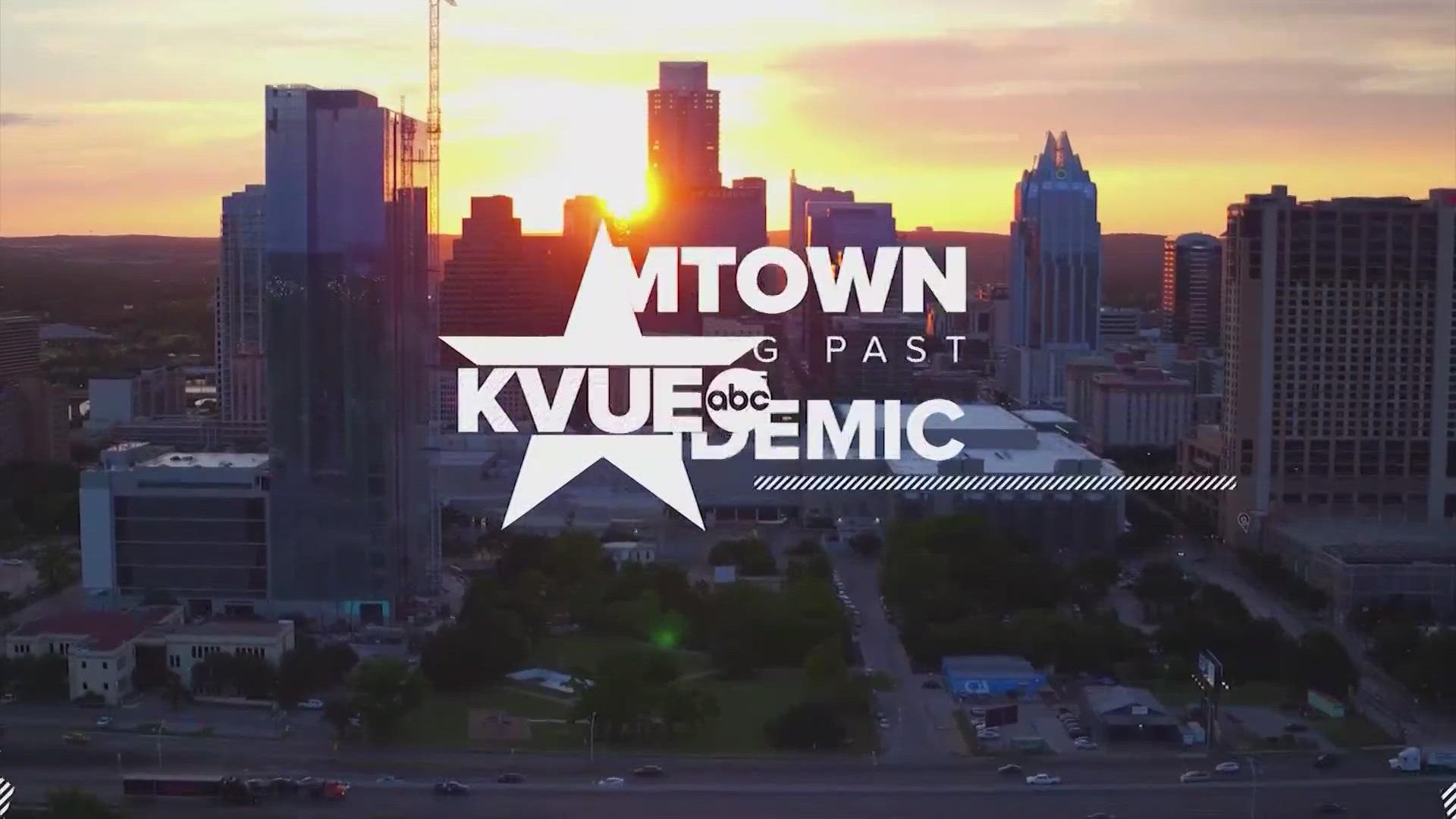COVID-19: The hit Austin's hotels took in 2020, and the outlook for 2021
The Austin Hotel and Lodging Association estimates 80% of hotel workers were out of work during the peak of the pandemic. But there is optimism for 2021.

While many industries were greatly impacted by the peak of the COVID-19 pandemic, it's no secret that the hotel and lodging industry took a big hit.
"At the peak of our distress here locally, we estimate about 80% of the team members that work in the hotel industry were out of work," said Joe Bolash, the chairperson of the Austin Hotel and Lodging Association, and also the general manager of the Hilton in Downtown Austin.
According to a survey of members conducted by the American Hotel and Lodging Association (AHLA) from May 12-14 in 2020, nearly nine out of 10 hotels have laid off or furloughed staff, while only about one-third have been able to rehire any staff.
But with several companies distributing a vaccine for COVID-19, there's optimism for the rest of 2021 with leisure travel starting to make a comeback, and some new hotels finally expecting to open after much delay.
But it's first important to understand what 2020 was like for the industry.

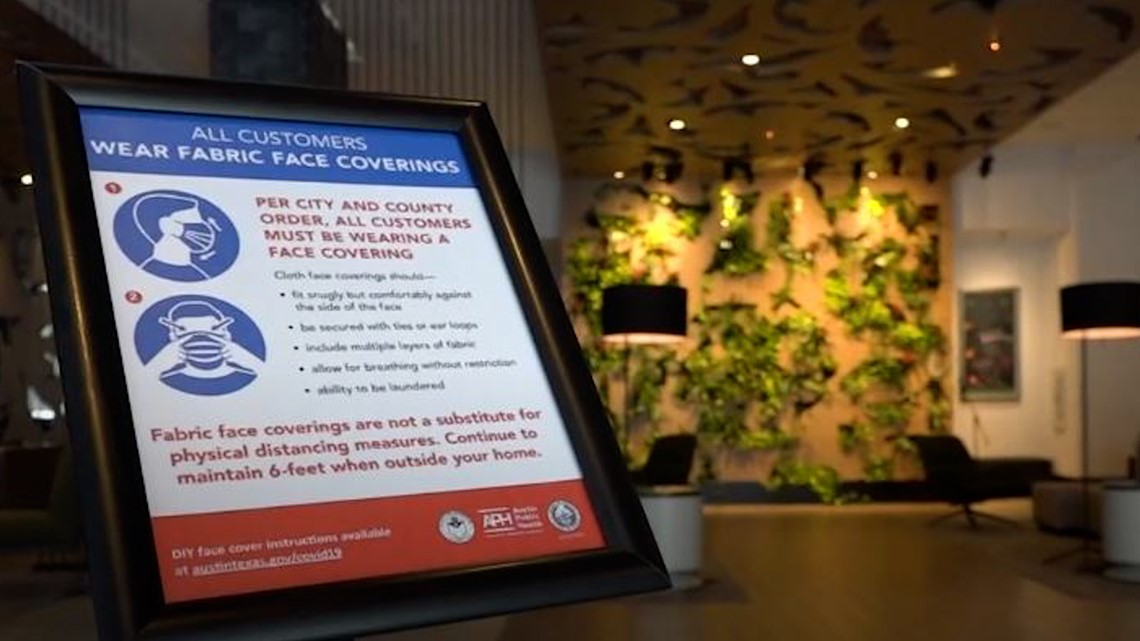
Empty hotels lead to job loss
When travel restrictions were placed to help prevent the spread of COVID-19, business for hotels came to a halt.
Event after event (SXSW and Austin City Limits to name a few), Austin saw its fair share of cancellations, which led to record-low occupancy during what normally would be the busiest seasons for hotels.
According to STR, a firm that tracks data for the hospitality industry, hotel occupancy was down to just 3.4% in the Austin Central Business District (CBD) for the week of April 5 to April 11.
While the numbers increased over the course of 2020, they still stayed very low compared to 2019.
Data from STR showed that occupancy in the week of Aug.16-22 was 28.9% for Austin's CBD, which in comparison for that same week in 2019 was at 72.1%.
In total, the average hotel occupancy rate for Austin's CBD in 2020 was 31.4% according to STR. In 2019, that number was 77.4%.
"2020 was the worst year on record – STR has data back 30 years and this was the single worst year," said Jan Freitag, the national director for hospitality market analytics at STR. "Full-service hotels that normally rely on business, travel and group travel are just, you know, not doing well."
No travel due to safety concerns means no one staying in hotels, and that meant job loss.
Based on a survey from the American Hotel and Lodging Association of more than 1,000 members from Sept. 14-16 in 2020, nearly 70% of hotels were operating with less than half of pre-COVID staffing levels.
KVUE spoke to several hotels last year that explained their low staffing situations, including the Aloft Austin Northwest in April of 2020 when it said it had to lay off or furlough a majority of its staff due to low occupancy.
Other hotels in Austin experienced the same hardships at some point in 2020.

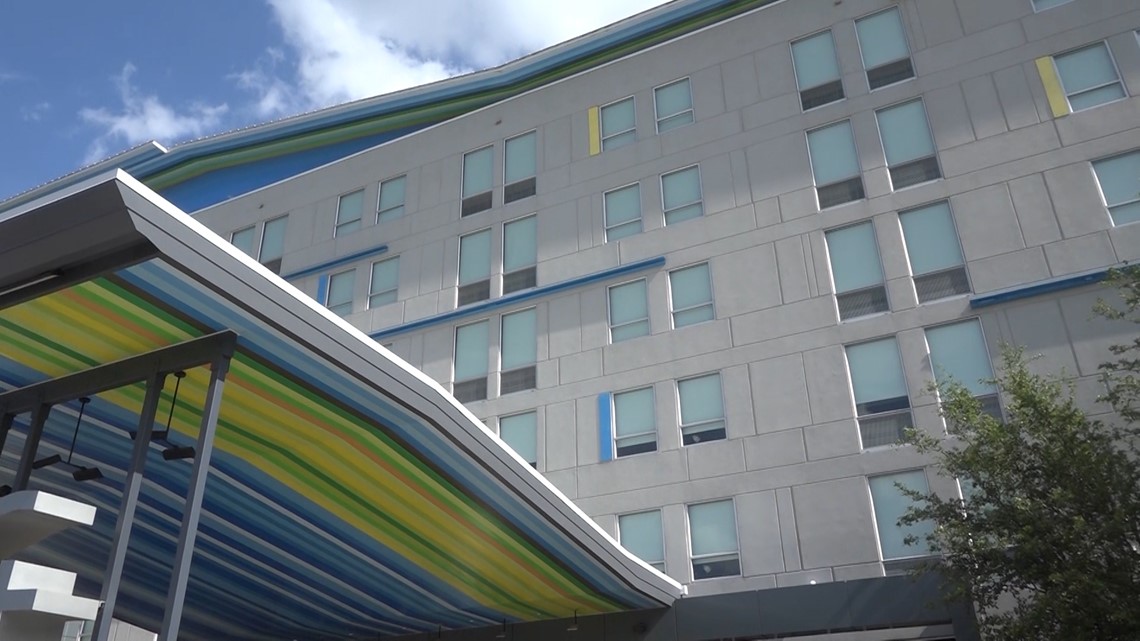
But Freitag with STR said on the other side of things, consumers eventually started feeling comfortable again to travel for vacation, which is why the numbers trickled back up as 2020 went on.
"We saw that the American consumer really stepped up, and after being at home for 90, 180 days or so, people were just ready to go somewhere," he said. "You know, they hopped in their car and they ended up taking the big road trip of 2020. And we expect something similar to happen again this summer."
He adds that the more people get vaccinated, the more we will see business travel start to pick up, which could be a big boost for hotels.
"We expect, based on the data that we get from our friends at tourism economics that do forecasting, that by July, 60% of the U.S. population has been vaccinated. So we would expect that towards the later part of the summer, in Q3 and Q4, we see some pickup in business travel again," said Freitag.
That pickup in travel may come at a good time, as new hotels in Austin that were supposed to open in 2020 are finally opening in 2021 after much delay.

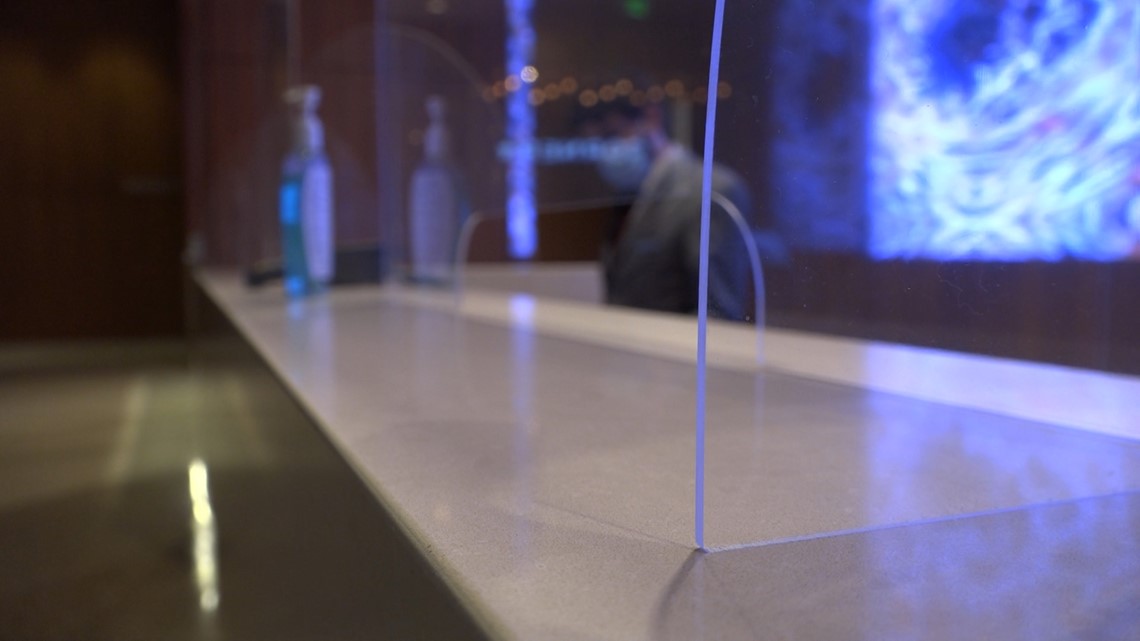
Delays, closures and resiliency
By now, you may have been to the brand new Austin Marriott Downtown hotel, but only in one section, and it's not the hotel itself.
Its tropical outdoor bar seven floors up, Zanzibar, was the only component open for months.
The hotel's general manager, David Meisner, explained to KVUE they were planning to open in August.
"The hotel was fully built, construction was done, DPR had turned over the building to us, and then we were faced with that difficult decision kind of end of June last year to try to determine how long the pandemic was going to go for, what the impact was. And looking at travel, demand just, unfortunately, had to make that really difficult decision – that brand-new, 800,000-square-foot hotel, state of the art, just didn't make sense to open in August."


However, as mentioned before, the bar on the terrace remained open, allowing some jobs to come in, with safety measures.
"We've probably gone through six or seven iterations of how we have set Zanzibar, how we've seen our guests interact with the space, how they've engaged the space, how safe they feel," said Meisner.
Fortunately, the hotel was able to open officially on March 4, offering a completely touchless check-in and check-out experience, among other safety measures.
There are more than 600 guest rooms and four restaurants. They also anticipate having around 150 employees at the hotel.
Meisner said the resilience of the industry through the pandemic speaks volumes.
"I think our business has always been built and especially [the] industry having fortitude and having grits and being able to persevere through difficult times. And that's always been our industry," he said. "This is a whole new level of it. But what we have seen is we've seen the leisure travel begin to return. We've started to see social events begin to return. And in 2021, because they couldn't happen in 2020, you know, there is a glimmer of hope around the group side, you know, business travel and corporate travel, it's going to come back."


Just up the road and practically embedded in the University of Texas at Austin campus is The Otis hotel. A musical theme can be seen throughout the hotel, including a vinyl library in the lobby with an onsite vinyl concierge, and record players in the hotel rooms. A poolside view looks out toward the UT Tower.
General Manager Thomas Hoffmann explained they originally opened in February of 2020. Then, the pandemic rolled in. They closed four weeks after originally opening and finally reopened again on Jan. 13, 2021.
"Well, as you can imagine, 2020 has been extremely challenging for our industry and for our hotel, for all of us personally, especially when you just opened a hotel and then you have to close it four weeks later after doing all this work of preopening and recruiting and bringing all the employees on board," said Hoffmann. "So it was certainly heartbreaking through this process of closing. But our main objective to this closure as well was just stay in touch with our workforce, our employees, to make sure when we do reopen this hotel, that we can bring those people back to work and we'll make sure we have as many people who've worked with us before we closed it back to work now."
During the closure, he explained they had to furlough 95% of their staff and have been able to bring back around 30% as of late January.
"It's very tough on many levels because you develop a personal connection to your employees and there's a story behind every single one of them. And to lose your work and your livelihood and to communicate that to your employees, that's a very difficult place to be in," he said.
He added that since he feels the hotel is so connected to the city, the team wanted to wait until the right time to open up again. Now that they are, he's optimistic for the future.
"Number one, we feel the Austin market itself is a strong market and will rebound strongly and quickly, especially in some segments. People are going to want to travel. People are desperate to get out and do things. So we feel the leisure travel especially will come back pretty, pretty strong, relatively quickly," said Hoffmann. "We don't anticipate a full recovery for at least a couple of years. It's just going to take time. We have to be patient. Things have certainly changed. And even the new normal is going to be different than the old normal, and we are fully prepared for that. And we obviously adjusted how we operate and we hope for the best."

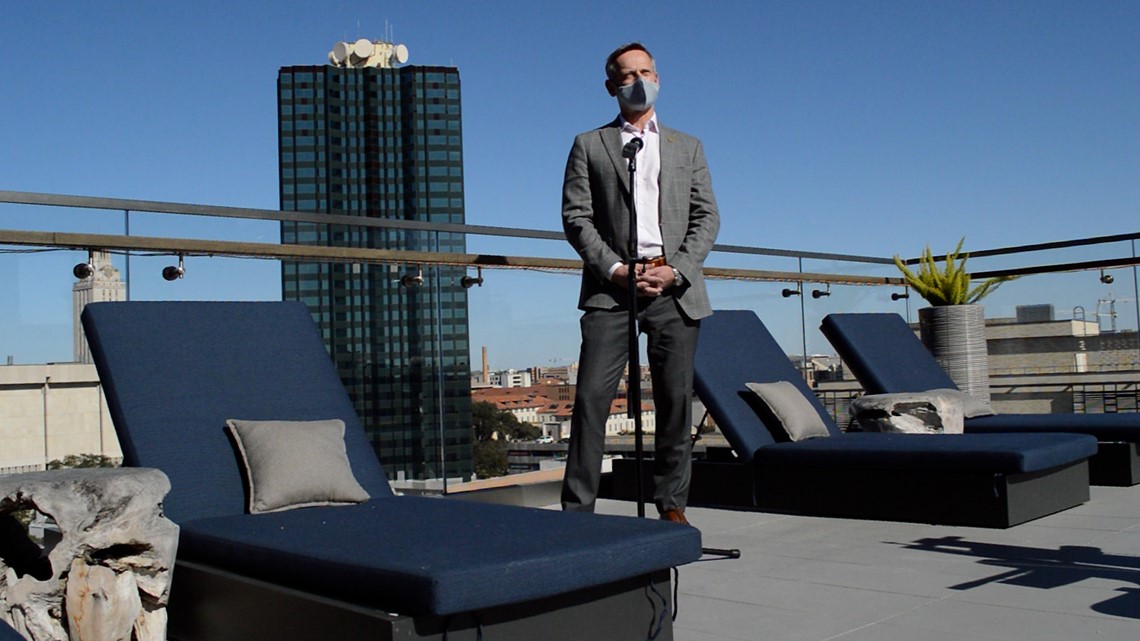
Joe Bolash with the Hilton Austin Downtown and chairperson of the Austin Hotel and Lodging Association also said leisure travel would be the initial driving force for recovery for the industry.
"Once we get good vaccination and we get the mortality numbers of COVID beginning to drop, hospitalizations are down, that next phase of travel will begin. Leisure will begin to ramp up even more. But the individual business traveler will return," he said. "Once the American public feels safe traveling, we are supremely confident that we're going to see just a resurgence of travel. It'll start in that individual business travel community, and then as we begin more and more vaccinations and we get to herd immunity, we'll see the meetings begin and it will be small meetings first."
He also said when it comes to hotels near convention centers, like the Hilton Austin, those may be the last hotels to fully recover.
"Hotels like this one in a central business district connected to the convention center, we were the first to be impacted; we'll probably be the last to recover fully," he said. "Not that we won't see business increase, we certainly will. But convention business, the largest of the meetings, the largest of those gatherings that have been restricted by government regulations, locally or otherwise, are going to be the last ones to return. But they will return."
Getting creative
Throughout 2020, some hotels have had to find ways to generate revenue, while being safe. But in some cases, that meant switching up operations altogether.
The LINE Hotel in Downtown Austin utilized its unused and empty event spaces, making it available to companies for a price.
"Our entire second floor has event spaces with some big ballrooms and we have some smaller, what we would call breakout studios, that typically people would use when they would be using those larger ballrooms for breakout sessions," LINE Hotel Austin general manager Adam Bussell told KVUE in late September of 2020. "And with those just sitting empty, we were seeing a lot of hotels that were doing office workspace from hotel rooms."
Bussell explained last September the large, open spaces would provide a safe environment during the COVID-19 pandemic, in addition to the safety measures the hotel had already implemented.
"We found people were not wanting to leave one small space of their apartment and go to another small space by themselves, but they were wanting to do a catch-up with some of the people they used to see in the office all the time," Bussell said.

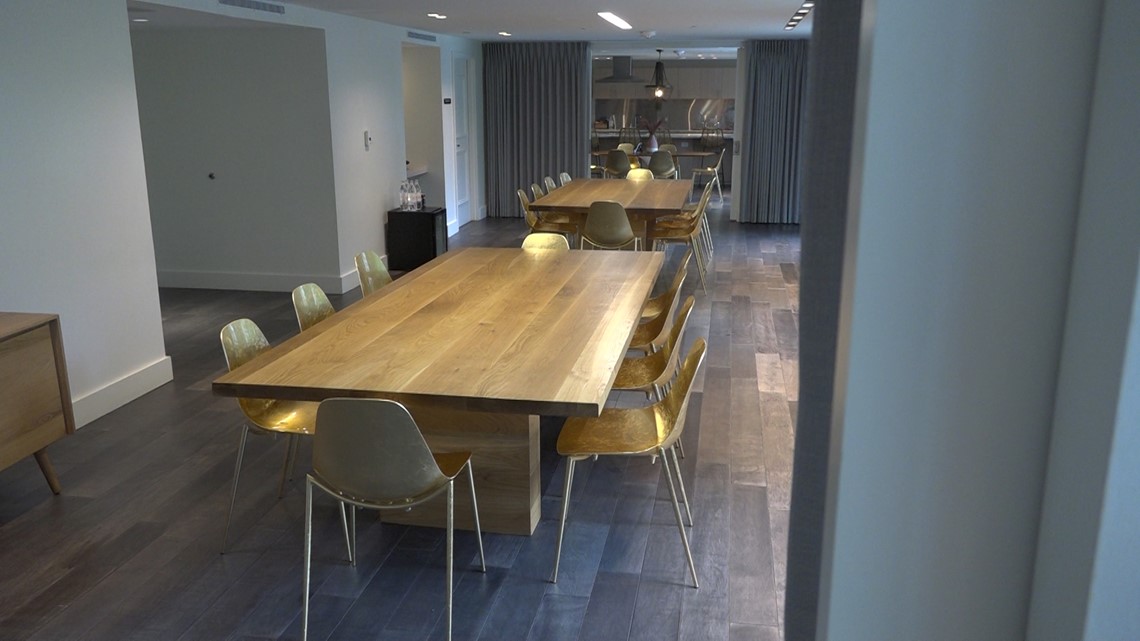
Other hotels were creative by just sending a positive message during a dark time for many people.
The Fairmont Austin has long been known for lighting up the Austin skyline with light designs using their guest rooms facing south, but it was especially present during the peak of the pandemic.
Austin buildings lit up in blue on a Wednesday night in May of last year, including the Fairmont, which displayed a special nurses sign.


Outlook for 2021
In late January, the American Hotel and Lodging Association released its outlook for the industry for 2021.
Among other key findings, it estimates 200,000 direct hotel operation jobs will be added in 2021, but that will stay nearly 500,000 jobs below the industry's pre-pandemic employment level, which was estimated to be at 2.3 million employees.
Additionally, even as three companies are now on the fleet with vaccines to fight COVID-19, AHLA projects half of hotel rooms in the U.S. to stay empty.
You can read the full report here.
Overall, Bolash with Austin's Hotel and Lodging Association has a message of optimism.
"So our message is, we are confident that travel will return. We are hopeful that it's sooner than later that the vaccination process, in particular, moves us through what has been a global disaster in terms of a health care crisis," he said. "And the rays of hope, the foundation, is in place for Austin to prosper for a very long time in terms of the hospitality industry."
During the deadly winter storm that struck Texas in February, hotels that still had power filled up quickly. Though, some people in Austin complained about possible price gouging that happened in our area, specifically with the cost of hotel rooms.
The local group Survive 2 Thrive worked with the Austin Hotel and Lodging Association to provide safe shelter and food to anyone in need.
PEOPLE ARE ALSO READING:


